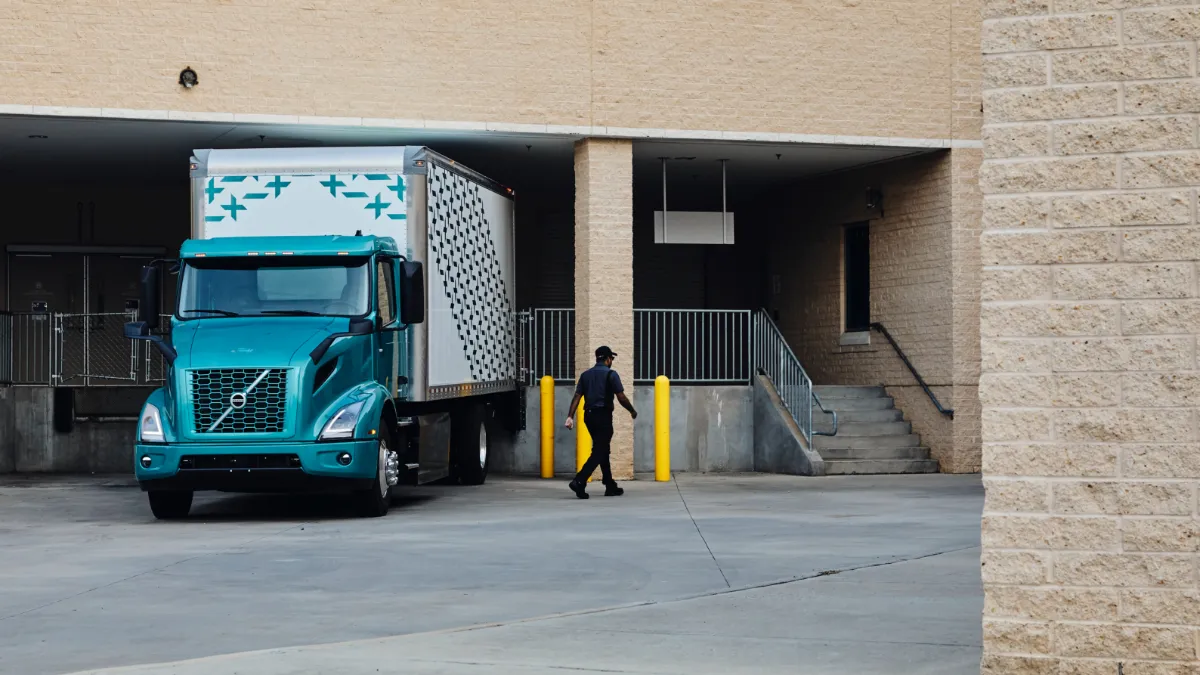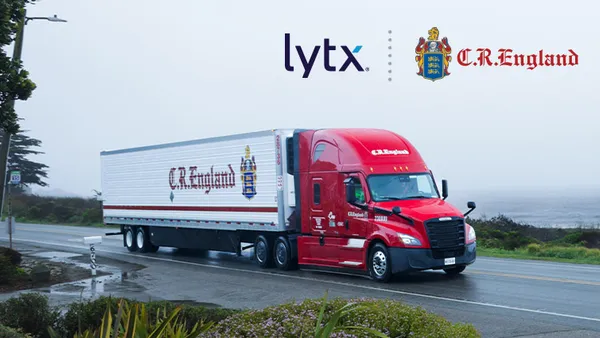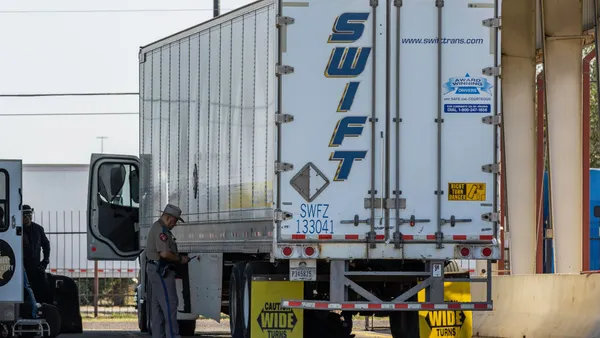Dive Brief:
- A United Auto Workers strike at Volvo Trucks adds to production woes for tractor manufacturers. About 2,900 workers at the Volvo Trucks' only U.S. plant, located in Dublin, Virginia, went on strike Saturday.
- The union said workers seek an agreement that provides job security along with "adequate wages and benefits." The UAW said the soonest that talks can begin is Monday.
- The Virginia plant is in the middle of a $400 million upgrade, according to Franky Marchand, the vice president and general manager of the Volvo Trucks facility. Marchand said he was disappointed that work could not continue as the company negotiated with the UAW, as "progress was being made, and we had offered substantial increases in our employees' compensation."
Dive Insight:
OEMs are finding one hurdle after another to return to full production and supply fleets during a surge in freight business.
The latest headache for Volvo Trucks comes during other reboot problems, said Steve Tam, vice president of ACT Research. A couple of fires at Japanese semiconductor plants, combined with congested West Coast ports, has slowed imports of important computer chips needed for trucks.
The semiconductor shortage slowed production for Volvo and other OEMs. In March, Volvo Trucks said it would mandate "stop days" at all its global plants starting April 1 to manage the lack of chips.
"[The shortage] will have a substantial impact on the Volvo Group's production in the second quarter," Volvo said in a March 22 news release.
Tam said the chip-supply problems will likely push more truck production into the latter half of the year.
Now comes a UAW strike. Tam said any effect on U.S. supply of new Class 8 trucks will depend on how quickly Volvo Trucks settles with the UAW.
"If it had to happen in this cycle ... now is probably the best time," said Tam.
Major U.S. truck manufacturers slowed production of commercial trucks last year when the pandemic struck. Daimler Trucks, Paccar, Navistar, and Volvo and its subsidiary Mack Trucks all halted production for a few weeks in March 2020, as the coronavirus spread. Suppliers such as Goodyear also halted production.
The OEMs then picked up production, but at a slower pace, as they distanced workers and reduced capacity to assure the coronavirus was not spreading in close manufacturing quarters.
At the same time, TL spot rates began to recover last summer, and have stayed elevated. Fleets and independent drivers, confident in a strong business environment, might think of buying new trucks, which can improve fuel efficiency and reduce maintenance time. But Tam said ACT Research is sticking by its estimate of 248,000 sales of Class 8 trucks in 2021.












